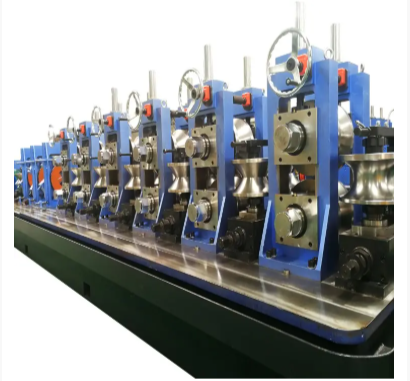Revolutionizing Production Lines with Advanced Automation
Reducing Material Waste Through Smart Technology
Cutting down on material waste remains a top priority for companies trying to go green in manufacturing. These days, factories are turning to smart tech like IoT devices and machine learning algorithms to keep track of how materials get used during production runs. Take predictive maintenance software for instance. These tools basically act as early warning systems for machines, letting operators know when parts might fail before they actually break down. This kind of ahead-of-time awareness cuts down on those frustrating unplanned shutdowns that lead to wasted raw materials. Some real world numbers back this up too. Factories that implemented these digital solutions saw their scrap rates drop significantly, with certain plants reporting around 20% less waste material going into landfills. The bottom line here is pretty clear though: investing in smarter manufacturing systems pays off both environmentally and economically when it comes to keeping material waste under control.
Key Components Driving Manufacturing Efficiency
Uncoiler Systems: Foundation of Seamless Feed
Uncoiler systems are pretty much essential for manufacturers who need to keep materials flowing smoothly through production lines without interruptions. They basically take those huge steel coils and unwind them at just the right speed so nothing gets backed up or stopped mid-process. There's actually quite a range of uncoiler designs out there, each built for different kinds of materials and processing requirements, which helps boost efficiency across various industries. Many factories have seen real improvements in output since switching to better uncoiler tech because it cuts down on the need for manual labor and keeps machines running longer between stops. Take one major steel pipe maker as an example they saw around 15% more throughput after installing specially made uncoilers on their production floor. That kind of improvement shows why these systems matter so much in modern manufacturing operations.
High-Frequency Welding for Structural Integrity
High frequency welding plays a vital role in making steel pipes these days, delivering much stronger welds that last longer than what we see with older techniques. The process heats up those steel edges through electromagnetic induction, which lets manufacturers join sections together quickly while still getting solid connections. Compared to standard welding approaches, this method gives better finishes on the weld surface and cuts down processing time significantly something that matters a lot when producing pipes at scale. Looking at structural performance, there's clear evidence from field tests showing that pipes made with high frequency welding can handle more pressure and stress before failing, meaning they tend to stay functional for many years longer. For steel pipe makers trying to stay ahead in a tough market, switching to this kind of modern welding tech isn't just beneficial it's becoming practically necessary as customers demand higher quality products.
Laser-Guided Sizing and Cutting Mechanisms
Steel pipe manufacturing has changed dramatically with the introduction of laser guided sizing and cutting tech. When manufacturers use lasers for cutting, they get much better control over pipe dimensions. Pipes come out exactly to spec most of the time, which means fewer corrections needed after production. The cutting process itself goes faster too, and these laser systems work well across different material types and thickness levels. Aerospace companies and auto makers have been quick to adopt this stuff because it saves them money in the long run. Take one aerospace manufacturer that saw production times drop by around 20% once they switched from traditional methods to laser guided cutting. While results can vary depending on the application, many shops report similar gains in both workflow efficiency and better use of resources overall.
Cross-Industry Applications Transforming Sectors
Infrastructure Development: Construction & Utilities
Steel pipe manufacturing equipment plays a vital role in modern infrastructure, especially when it comes to building roads, bridges, and utility systems. These machines produce durable steel pipes needed for everything from municipal water lines to underground gas conduits. Take water mains for example. Steel pipes need to last decades without failing, otherwise whole neighborhoods could lose access to clean water or face costly repairs from leaks. Major developments like new city expansions or highway construction demand strong piping solutions that can handle heavy loads and transmit essential services over long distances. The latest advancements in pipe manufacturing tech have made these big projects faster and cheaper to complete. Contractors report getting better results too, with pipes that stand up to harsh conditions longer than ever before, which means fewer maintenance issues down the road.
Energy Sector Innovations: Oil/Gas Pipelines
Steel pipes form the backbone of our energy infrastructure, especially when it comes to moving oil and gas across vast distances. When those pipes fail, we're looking at major problems from leaks and environmental disasters. Fortunately, the last few years have seen some serious upgrades in pipeline tech that make things safer overall. Take corrosion resistance materials for instance these days pipelines can last much longer without breaking down, which matters a lot in places where conditions are tough on metal. Companies are now using stronger alloys and better protective coatings too, cutting down on unexpected failures. According to recent industry data, these improvements have made energy transport systems more reliable while slashing maintenance costs by around 30% in some cases. What this means practically is fewer disruptions to service and lower operational expenses for companies managing these critical assets.
Transportation Advancements: Automotive Frames
New developments in steel pipe manufacturing are making a big difference in the automotive sector, especially when it comes to building strong car frames. Today's steel pipe tech manages to cut down on weight while keeping impressive structural strength something car makers really need if they want to boost fuel economy without compromising on safety standards. Vehicles with lighter but tough frames perform better on the road and emit less pollution too. Take look at how some automakers now incorporate special grade steel pipes into their frame designs these parts help cars withstand crashes better and last longer despite being lighter overall. Industry data indicates that companies switching to these newer materials see improvements in their production lines and gain an edge over competitors. The result? Cars that meet today's green requirements while still delivering top performance characteristics, exactly what consumers demand as transportation needs continue changing across different markets.
Technological Advancements Reshaping Standards
AI-Powered Quality Control Systems
Quality control in steel pipe manufacturing is getting a major boost from artificial intelligence these days. What makes AI so valuable here is how it helps maintain consistent quality across batches while cutting down on those pesky defects that always seem to pop up. Manufacturers are starting to implement smart algorithms that actually spot problems before they happen, looking at past production data to tweak their processes in real time. Take Demac Steel for instance they've seen around a 20 percent drop in defects since bringing AI into their operations. Makes sense really, because the steel pipe industry demands nothing less than top notch standards consistently throughout every production run.
Sustainable Manufacturing Practices
Steel pipe manufacturers are starting to take sustainability seriously these days. Many companies have begun implementing strategies such as reusing scrap metal and switching to processes that consume less power, all aimed at cutting down on environmental damage. Take electric arc furnaces for example they can recycle old steel while using about half the energy needed by those traditional blast furnaces. The difference in carbon emissions between these approaches is pretty substantial, which helps make the entire industry cleaner overall. Industry reports indicate around a quarter less energy consumption across the steel pipe manufacturing sector since these green initiatives took hold, showing just how much impact sustainable practices can actually have when implemented properly.
6th-Generation Speed Enhancements
The sixth generation of manufacturing tech has really transformed how fast things get made in the steel pipe sector. We're talking about massive gains in productivity here. Companies are now using advanced machines that crank out pipes at incredible speeds compared to older methods. Take a look at both seamless and welded pipe production lines - many factories report around 40% faster output since implementing these new systems. This kind of speed boost matters a lot when customer orders keep growing month after month. Industry data backs up these improvements too, showing better performance numbers across different plants and production environments. Manufacturers who adopted these technologies early on find themselves way ahead of competitors still stuck with outdated equipment.
Operational Benefits Redefining Manufacturing Economics
Labor Cost Reduction Through Full Automation
Automation is changing how money flows through manufacturing, especially when it comes to cutting labor costs in places like steel pipe production. When factories replace workers with machines, they save big on payroll, training programs, and employee benefits packages. What does this mean for businesses? They get to spend their cash elsewhere, maybe on new equipment or expanding operations, which helps boost profits and keeps them competitive against rivals. Take Kusakabe Electric & Machinery as an example. After going all-in on automated systems, they saw real dollars saved month after month. Their case shows just how much tech can streamline factory work while still keeping costs under control. Sure, there's upfront investment involved, but many manufacturers find that these savings stick around year after year, helping build stronger bottom lines over time.
Enhanced Output Consistency for Global Markets
Technology improvements have become essential for keeping output quality steady enough to satisfy what global markets need these days. When factories install advanced machines along with better quality checks, they actually stand a much better chance at hitting those international standards that customers expect no matter where they live. Take Kusakabe's aluminum radiator pipe factory as an example. Their operation runs so precisely that even at top speed, the pipes come out exactly right every time. That kind of consistency isn't just nice to have it's basically required if companies want to stay competitive. Business owners around the world keep telling us this too. They point to consistent quality as one of the main reasons why some manufacturers succeed while others struggle, especially when competition gets tough in manufacturing circles.
Lifecycle Cost Optimization Strategies
Looking at lifecycle costs matters a lot when making decisions in manufacturing, particularly for sectors with big ongoing expenses such as steel pipe production. When companies consider everything from initial design all the way through to eventual disposal, they often find ways to save money across the board. Better maintenance routines and investing in longer lasting materials tend to cut down on overall expenses over time. Take companies working with Kusakabe pipe mills for instance, many report real savings after adopting these lifecycle optimization techniques. These changes don't just help bottom lines either; they also contribute to more sustainable operations in the long run, something manufacturers increasingly need to stay competitive while keeping environmental impacts in check.
FAQ
Why is precision engineering important in modern pipe manufacturing?
Precision engineering is crucial as it enhances quality, reduces rework, minimizes deviations, and maintains product integrity, making production more efficient.
How do smart technologies reduce material waste in manufacturing?
Smart technologies like IoT and machine learning optimize material usage and anticipate equipment needs, reducing downtime and waste by up to 20%.
What role do uncoiler systems play in manufacturing?
Uncoiler systems ensure a seamless feed of materials into production lines, reducing manual handling and increasing throughput efficiency by up to 15%.
How does full automation reduce labor costs in manufacturing?
Full automation substitutes human labor with machines, reducing expenses related to wages, training, and benefits, thus boosting profitability.

